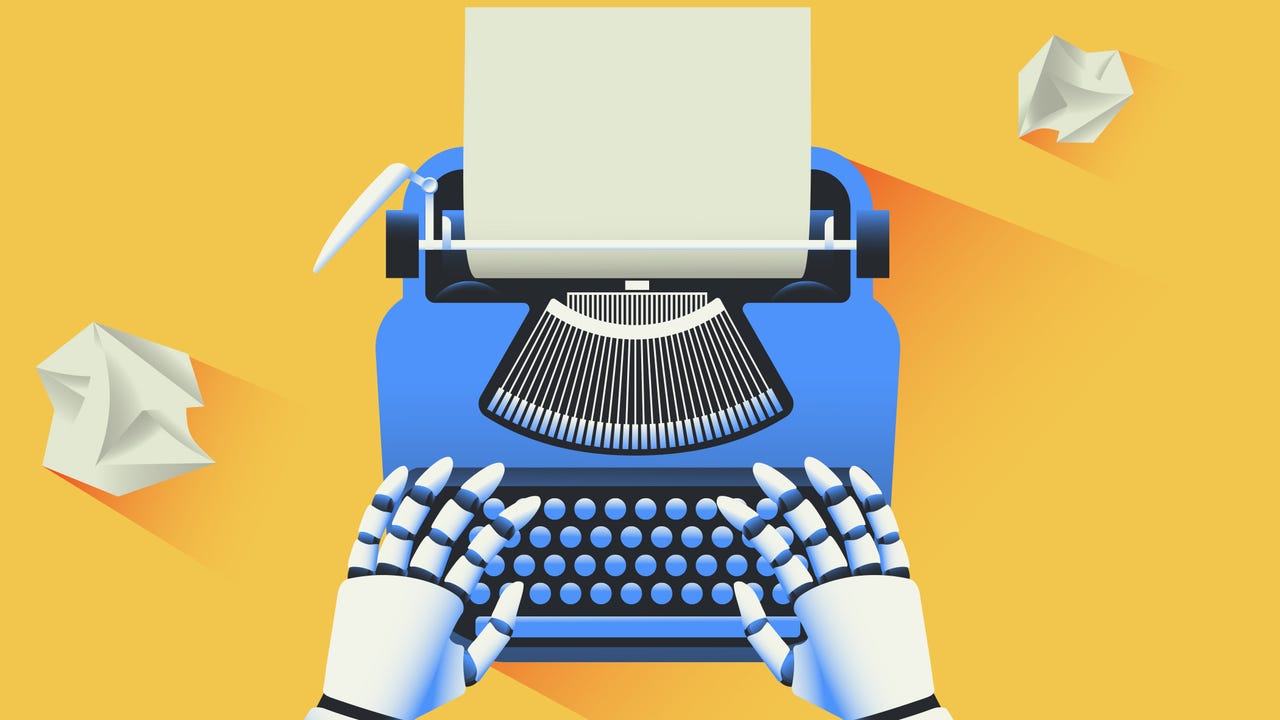'ZDNET Recommends': What exactly does it mean?
ZDNET's recommendations are based on many hours of testing, research, and comparison shopping. We gather data from the best available sources, including vendor and retailer listings as well as other relevant and independent reviews sites. And we pore over customer reviews to find out what matters to real people who already own and use the products and services we’re assessing.
When you click through from our site to a retailer and buy a product or service, we may earn affiliate commissions. This helps support our work, but does not affect what we cover or how, and it does not affect the price you pay. Neither ZDNET nor the author are compensated for these independent reviews. Indeed, we follow strict guidelines that ensure our editorial content is never influenced by advertisers.
ZDNET's editorial team writes on behalf of you, our reader. Our goal is to deliver the most accurate information and the most knowledgeable advice possible in order to help you make smarter buying decisions on tech gear and a wide array of products and services. Our editors thoroughly review and fact-check every article to ensure that our content meets the highest standards. If we have made an error or published misleading information, we will correct or clarify the article. If you see inaccuracies in our content, please report the mistake via this form.
AI-generated books are sneaking into online bookstores. Here's how to spot them


The proliferation of these AI-generated books has given way to concerns about content quality and even authorship.
With artificial intelligence tools becoming more popular and easy to access, different industries face new challenges to simultaneously incorporate and defend against them. The publishing industry is a prime example as it grapples with a deluge of AI-generated books in online stores.
These books are overwhelming the virtual shelves of bookstores, including those of Amazon. The Kindle e-reader maker is known to drive e-book sales, controlling up to 80% of book distribution in the US.
Also: How to get (great) free books on Kindle
The proliferation of these AI-generated books has given way to concerns about content quality and even authorship, as some of these titles have used authors' real names without their permission or knowledge.
"Whoever's doing this is obviously preying on writers who trust my name and think I've actually written these books. I have not. Most likely they've been generated by AI," author Jane Friedman shared in a recent blog post after finding fake books attributed to her on Goodreads. "When I complained about this on Twitter/X, an author responded that she had to report 29 illegitimate books in just the last week alone. 29!"
Although the AI-generated book trend is particularly noticeable in travel guides, the practice is spreading to other categories, like cooking, self-help, programming, and fiction, according to The New York Times. Just a couple of months after the launch of ChatGPT, Clarkesworld, a science fiction magazine, had to stop new submissions after seeing a rise in AI-generated stories.
"With the flood of AI content now published at Amazon, sometimes attributed to authors in a misleading or fraudulent manner, how can anyone reasonably expect working authors to spend every week for the rest of their lives policing this?" Friedman asked. "And if authors don't police it, they will certainly hear about it, from readers concerned about these garbage books, and from readers who credulously bought this crap and have complaints. Or authors might not hear anything at all, and lose a potential reader forever."
Also: Amazon now using generative AI to summarize customer reviews
As a reader, here are a couple of things you can try to spot AI-generated books before purchasing:
- Check the author's name and do a quick Google search: If an author actually wrote this book, it should be easy to find it on the author's official website, in the news of the book launch, in reader and book club forums, and in online libraries.
- Read the reviews: Weed through the reviews to see if any other buyers have mentioned the possibility of the book being illegitimate. Books may have fake AI-generated reviews, but you could spot these by looking for patterns in how the review is written. Unless the person interacting with them has specified otherwise, AI chatbots tend to write in a simple structure, using plain, friendly language. They also structure texts consistently, so look for a common pattern among different reviews.
- Return the book explaining your concerns: If you've purchased an e-book that leaves you suspicious on Amazon, you can try returning it through Amazon's customer service. There's no guarantee this will work, as Amazon doesn't outright prohibit AI-generated content, but the company has content guidelines against violating intellectual property rights and misleading content.
AI chatbots like ChatGPT, Bing AI, Google Bard, and Claude are being used ever more frequently to create written content, thanks to their ability to generate text in different styles. These AI chatbots are also widely accessible, as you usually need nothing more than a valid email address to sign up for an account. They're also extremely easy to use, with intuitive chat windows where you write your questions or prompts, and the bot replies in a conversational manner.
Also: 75% of businesses are implementing or considering bans on ChatGPT
This means anyone can use these generative AI tools to create articles, code, letters, resumes, and books.
"While we believe there will be opportunities to empower editors and creators with technology over time, just like the typewriter or computer did, we don't see the author at the center of the business model changing," Ted Oberwager, private equity partner at Kohlberg Kravis Roberts (KKR), recently told Axios. "Authors, and the human connection and experience, will not be replaced."
These chatbots are built on large language models (LLM) trained on available digital data -- including available books, a fact that has made some AI companies the targets of copyright infringement lawsuits. The digital data also includes websites, studies, and other texts, not to mention ongoing training with user data.
Also: Five ways to use AI responsibly
Considering that GPT-4 has been getting dumber over time, answering simple questions incorrectly and often contradicting itself, the concern about AI-generated content quality is valid.
"We desperately need guardrails on this landslide of misattribution and misinformation," Friedman said. "Amazon and Goodreads, I beg you to create a way to verify authorship, or for authors to easily block fraudulent books credited to them. Do it now, do it quickly."